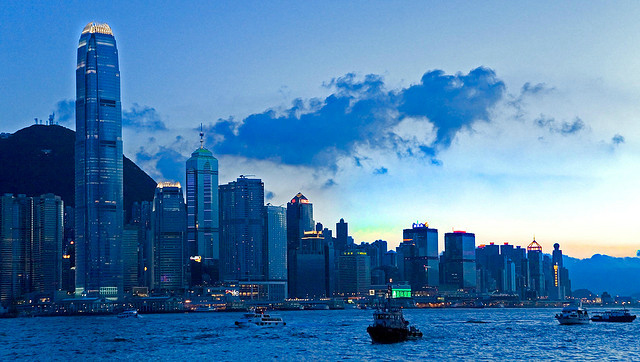Pro-democracy demonstrators took to the streets of Hong Kong’s Central business district in late September and October – demanding China’s Communist Party live up to the promise of democracy made when the British transferred the territory back to China in 1997. The uncertainty surrounding Hong Kong’s future weighs heavily on its citizens, as well as the international financial community.
Will protesters’ demands for open elections in 2017 push the power of China President Xi Jinping? Could perceive instability cause international investors to take their business elsewhere, such as Singapore? Just how badly has the reputation of Hong Kong’s financial sector been damaged? Emerging market investment experts from across Natixis Global Asset Management share their view points
Assessing the economic impact of these protests, François Théret, Chief Investment Officer at Absolute Asia Asset Management, makes the following comments:
The short-term damage to the economy is already visible. Hong Kong economic growth has been slowing since 2013 and the recent developments will only exacerbate the downtrend, with retail sales and tourism badly hit. China has stopped group tours to Hong Kong and retail sales recorded double-digit falls during China’s Golden Week holiday from October 1 to 5, according to the Hong Kong Retail Management Association. The group also reported restaurants and retailers located in the Central and Admiralty business districts recorded volume drop of 40% to 50% compared to the same holiday week last year. Some watch and jewelry shops in the Central area even reported close to 80% decline in sales. The impact on financial services and merchandise trade has probably been limited so far.
The key question is whether the current protest will jeopardize the city’s long-term economic potential. We strongly believe that Hong Kong’s status as a major global financial market with strong rule of law and increasing cooperation with other international financial hubs is unshakable. Mainland China is as important to Hong Kong as Hong Kong is to China for implementation of its reforms agenda. Hong Kong has been the main test field for nearly all the new open-up policies introduced by Beijing, including the recent R-QFII (RMB Qualified Foreign Institution Investors) program and the Shanghai–Hong Kong Stock Connect. The first-mover advantage has helped Hong Kong secure the rapidly growing source of financial revenues from the offshore yuan business. Hong Kong maintains a comfortable lead over other locations, such as Singapore, London and Frankfurt.
Michael McDonough, Emerging Markets Analyst at Loomis, Sayles & Company, adds:
Hong Kong, for here and now, is still the finance capital of Asia ex-Japan. We believe the pro-democracy protests do not undermine this leadership.
The protests do highlight that Hong Kong is ultimately a city that belongs to China. Within that, it raises a broader question of Hong Kong’s ultimate positioning: a city of eight million, within China, a country of 1.4 billion. Beijing is the political capital. Shanghai is the industrial capital. Hong Kong has been the financial capital, the place where international (offshore) investors have sought to invest in China.
With the new Shanghai–Hong Kong Stock Connect, both cities, the country overall and investors (Chinese and international) will benefit. However, over the intermediate term, we believe Hong Kong’s relevance will be less dominant as Hong Kong becomes enveloped in China and international investors gain comfort and access to the onshore market.

